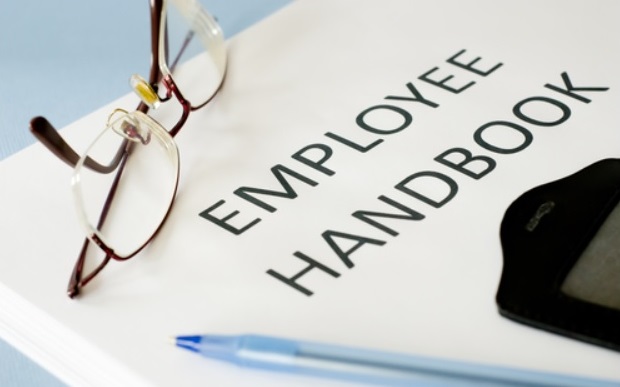
Articles
Do You Have to Sign Employee Handbook and Can You Refuse?

Do you have to sign employee handbook? What happens if you don't?
In this blog post, we'll look closely at why do you have to sign employee handbook before starting a new job. We'll also provide tips on how to create a good employee handbook for small businesses.
Employee Handbooks: The Importance of Signed Acknowledgements
Employee handbooks are a great way for employers to ensure that their employees understand the company’s policies and procedures. But having an employee sign an acknowledgment stating they have read, understood, and agreed to abide by the rules is more than just a formality — it serves as important documentation in case of any disputes or disciplinary issues.
So what happens if an employee refuses to sign? Legally speaking, employers aren't required to have employees sign these acknowledgments. However, it could come up during future legal proceedings so it's still wise for employers to use them.
If faced with this situation, employers do have options.
- They can remind the employee that refusal does not exempt them from following company policy.
- They can issue warnings.
- They can take disciplinary action such as suspension or termination depending on how serious the violation is.
It's also important for employers to remember that all employees should be treated fairly when enforcing policies and signing acknowledgments. No one should be given preferential treatment over another simply because of their refusal to sign the handbook.
Furthermore, keeping copies of signed documents will help protect both parties in case there is ever a dispute.
Do You Have to Sign Employee Handbook?
Employees sign the employee handbook to ensure that they understand the policies and procedures in place at the company. It also helps protect employers from potential legal issues.
Do you have to sign employee handbook?
Depending on where you are located, there may be certain laws or regulations that require an employee handbook acknowledgment form.
For example, some states have laws requiring employers to provide written notice of any changes made to their employee handbooks. In these cases, having each employee sign off on the updated version can help protect employers from liability if they face any legal challenges down the road.
Even if signing the employee handbook they’ve read isn’t legally required, it’s still beneficial for both parties — employers and employees — to acknowledge their understanding of workplace policies and procedures. This ensures that everyone is aware of what’s expected of them while employed with the company, which can help prevent misunderstandings or confusion later on.
Additionally, signing the employee handbook they’ve read provides evidence should either party need to refer back to something stated in the document during a dispute.
Before asking your team members to sign the company’s employee handbook, make sure they actually read through everything first. Provide plenty of time for them to do so before expecting signatures, otherwise, you could be putting yourself at risk if someone claims they weren't given enough time or opportunity to review the document.
You may even want to consider providing training sessions after handing out copies so everyone has ample opportunity to ask questions about specific items in the company’s employee handbook before signing off.
Employee signature on the handbook is not always a legal requirement, but it can provide important protections for both the employer and employee.
But what happens if an employee refuses to sign the employee handbook?
What Happens if You Don't Sign the Employee Handbook?
If you don’t sign an employee handbook, there can be serious consequences. An employee handbook is a document that outlines the policies and procedures of the company. It should include information about benefits, vacation time, sick leave, dress code, workplace safety protocols, and more.
Not signing it could lead to misunderstandings between employees and employers or even legal issues if the employer isn't following their own rules.
Can You Fire Someone for Not Signing The Employee Handbook?
No, an employee cannot be fired for not signing an employee handbook. However, employers may require employees to sign the handbook as a condition of employment and can take disciplinary action if they refuse to do so. It is important that employers make sure their employees understand the contents of the handbook and provide clear instructions on how it should be signed.
Employers should also keep records of who has signed and who has not in order to ensure compliance with any applicable laws or regulations.
Additionally, employers must provide adequate training regarding the contents of the handbook prior to asking for a signed acknowledgment form.
Many companies are now opting out of traditional signature requirements and are going digital. There are now tools like e-signatures or online forms where each individual must check off boxes confirming they have read through each section instead of having them physically sign paper copies during orientation day.

What to Include in a Handbook Acknowledgment Form
When creating an employee handbook, it’s important to include a section for employees to acknowledge that they have read and accepted the terms and policies contained in the handbook. This is separate from the "at will" acknowledgment that employers must also obtain from their employees.
A well-crafted handbook acknowledgment should include language such as:
"I hereby acknowledge that I have received, read, and understand this Employee Handbook. I further agree to abide by all of its provisions."
The acknowledgment should also be signed and dated by the employer and the employee.
It's also wise for employers to develop a procedure for distributing updates or changes to the employee handbook and seeking written acknowledgments of those changes. That way everyone is on the same page when it comes time for performance reviews or disciplinary action.
Employment law can be complex so make sure you consult with a labor and employment lawyer before drafting or implementing any kind of employee handbook. A poorly drafted document could lead to costly legal issues later on.
Tips for Creating a Good Employee Handbook
A well-crafted employee handbook should include information about your company's mission statement, values, and culture as well as company policies on dress code, attendance, sick days and paid vacation, workplace conduct, workplace safety, and discrimination/harassment.
When writing out your policies, make sure they are easy to understand by all readers. Avoid jargon or technical terms unless absolutely necessary.
Keep each section brief but detailed enough so that there is no confusion or misinterpretation.
Review your employee manual every year to make sure it is up-to-date on changes in employment laws and company regulations.
Conclusion
Do you have to sign employee handbook?
While signing an employee handbook is not always required, it can be beneficial for both employers and employees as it outlines expectations and provides guidance on how to conduct business in a professional manner. Creating a comprehensive and effective employee handbook can help ensure that everyone involved understands their rights, responsibilities, and obligations within the workplace.
Are you an entrepreneur, founder, manager, or operational leader looking for a better way to onboard, offboard and train employees? Trainual is the perfect solution! Our platform makes it easy to document processes and policies and provides superior onboarding, offboarding, and training experiences.
With our user-friendly system, you can quickly create customized employee handbooks that are legally compliant. Sign up today and take control of your organization's success!
Similar Blog Posts







